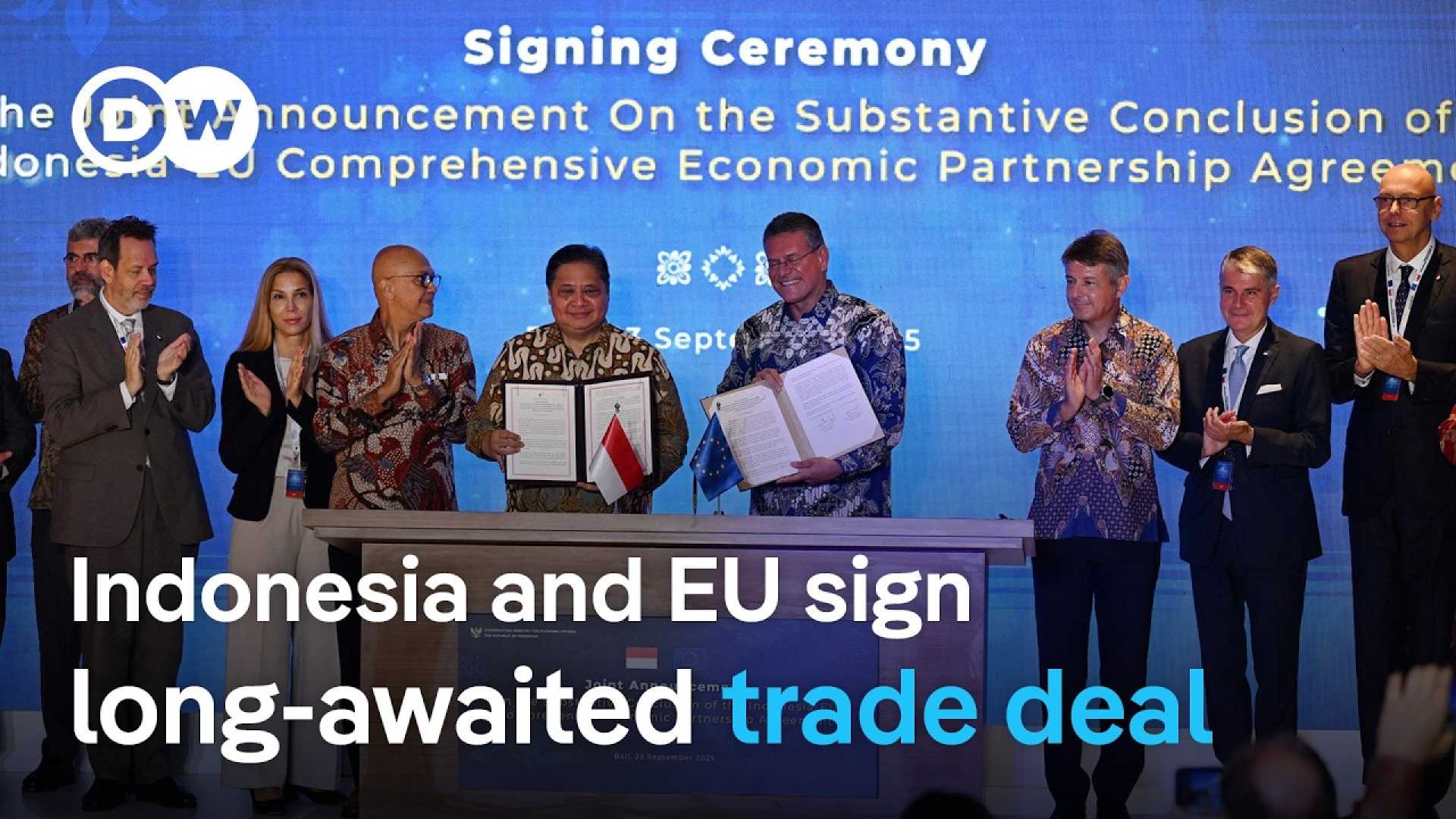Business
Indonesia and EU Finalize Comprehensive Trade Agreement in Bali

NUSA DUA, Indonesia, Sept 23 (Reuters) – Indonesia and the European Union finalized a free trade agreement on Tuesday after nearly a decade of negotiations, aimed at enhancing exports and investments.
Coordinating Minister for Economic Affairs Airlangga Hartarto and European Commissioner for Trade Maros Sefcovic participated in a signing ceremony confirming the Indonesia-European Union Comprehensive Economic Partnership Agreement (IEU-CEPA).
The agreement will see both parties eliminating import duties on over 90% of products, effective immediately for most items. Duties on Indonesia’s 50% tariff on EU cars will be phased out over a five-year period.
Indonesia anticipates that its bilateral trade with the EU, projected to reach $30.1 billion for goods in 2024, could double within five years of the deal’s implementation.
Since re-elected, U.S. President Donald Trump has pushed the EU to forge new trade alliances. The EU seeks to lessen its reliance on China, particularly for critical minerals essential for green technologies.
Sefcovic mentioned that the trade agreement would enhance investment by European firms in Indonesia, particularly in critical minerals like nickel, copper, and tin.
The agreement will also eliminate tariffs on Indonesian palm oil, coffee, textiles, and clothing exports to the EU. However, non-tariff barriers, such as the EU’s Deforestation Regulation (EUDR), could still pose challenges for countries exporting palm oil to Europe.
The EUDR, which mandates proof that palm oil imports do not stem from recently deforested areas, may complicate Indonesia’s palm oil exports to the EU, according to Eddy Martono of the Indonesian Palm Oil Association.
He stated, “There is still homework to be done, namely the EUDR, which must be resolved because it will be implemented later this year.”
Future steps for the agreement include legal checks and translations into official EU languages before securing formal consent from EU member governments and the European Parliament.
Hartarto expressed optimism about improving supply chains and innovation related to critical minerals and renewable energy amidst ongoing discussions with EU automakers on battery and electric vehicle manufacturing partnerships in Indonesia.












